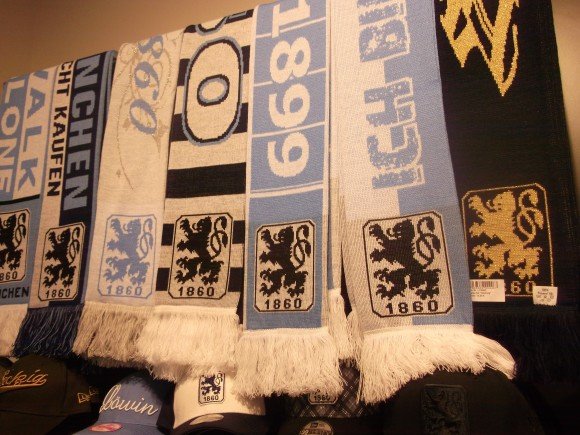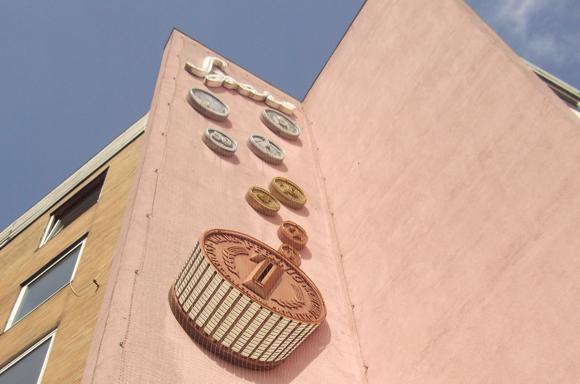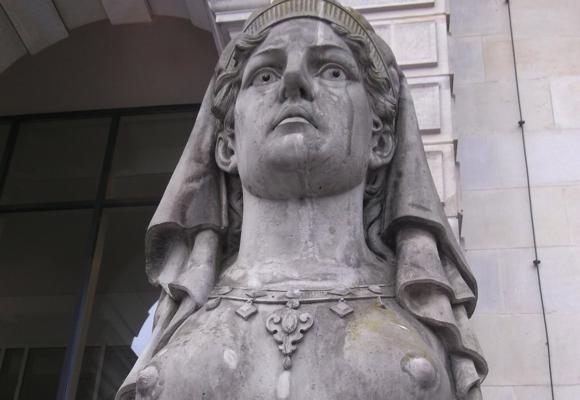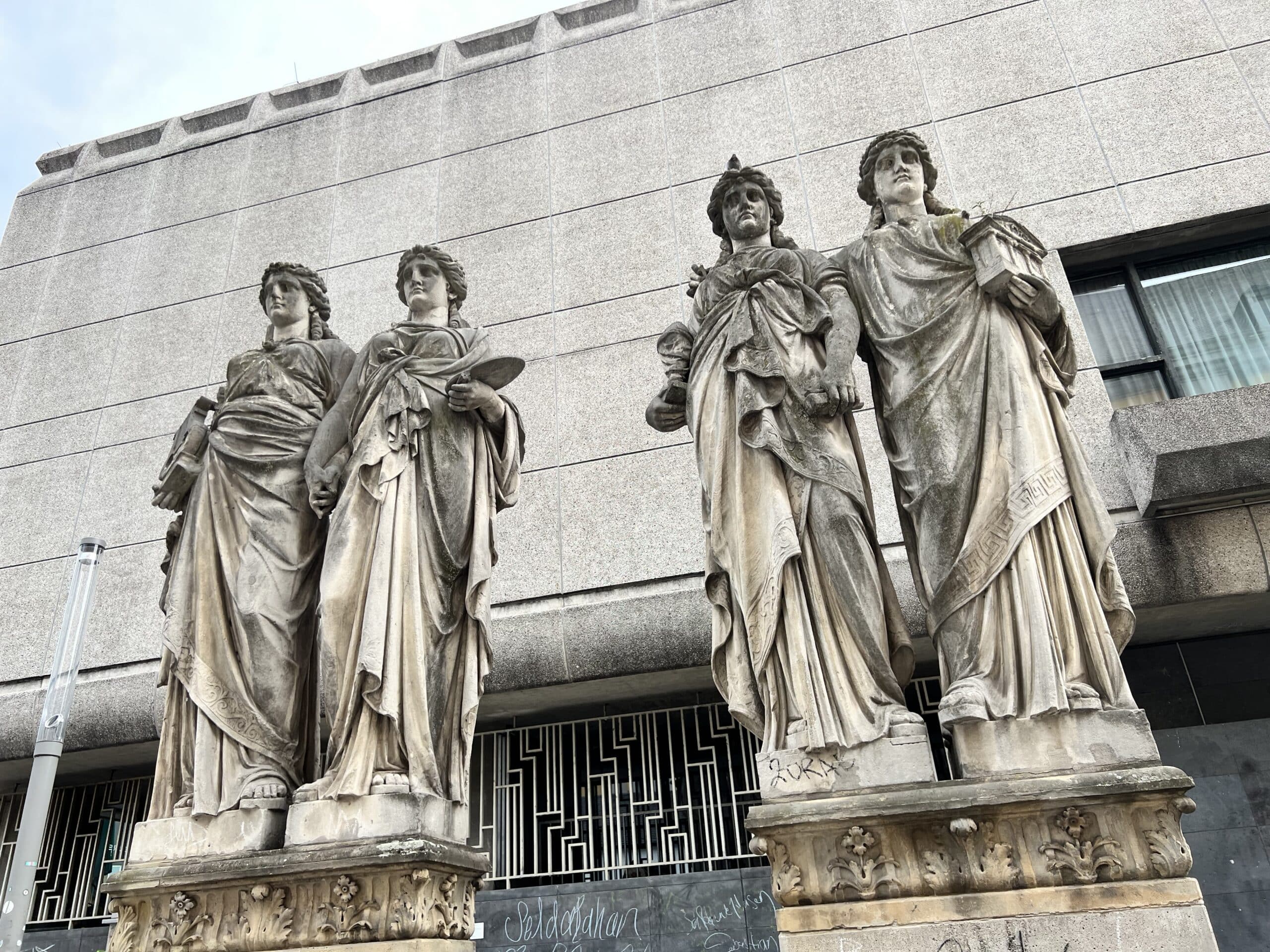Teams, tales and tips – a guide to the local game
Munich, home of six-time European champions Bayern, embraces every German cliché. Bavarians in lederhosen and shaving-brush hats rub shoulders on the terraces with equally unfashionable denim-jacketed rockers with sew-on badges.
The stage, though, is the contemporary Allianz Arena, also once groundshared by the city’s second club, TSV 1860.
Groundbreaking in its multi-coloured, multi-panelled exterior design, the prestigious Allianz staged the opening match of the 2006 World Cup, the Champions League final of 2012, in which Chelsea overcame Bayern on penalties, and the quarter-finals of Euro 2020. It will also co-host Euro 2024, including the curtain-raising fixture between Germany and Scotland.
Its predecessor, the Olympiastadion, was where Munich icon and Bayern’s greatest ever player, Franz Beckenbauer, led West Germany to the 1974 World Cup by beating Johan Cruyff’s Holland.
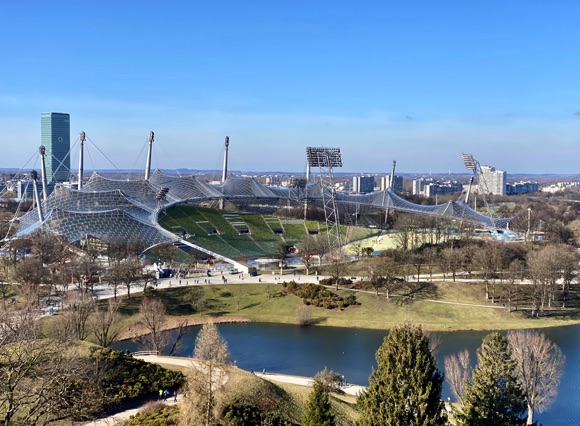
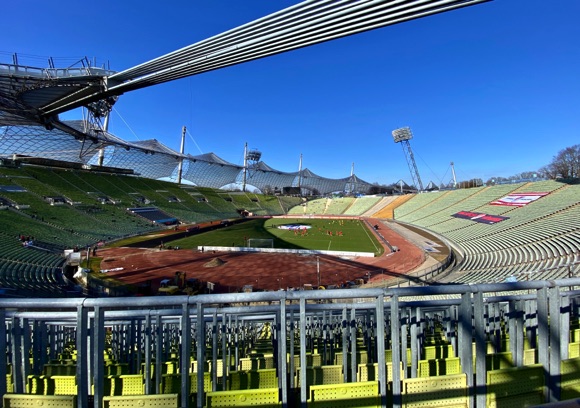
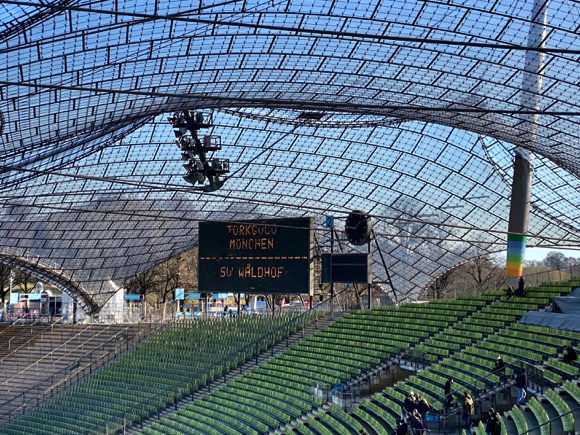



The boy from Giesing, a residential area south of town, who had snubbed his local club TSV 1860 after being slapped in the face by one of their players during a youth match in 1958, had triumphed in his own backyard.
On the verge of signing for die Löwen, the later World-Cup winning captain opted for Bayern, the club which had fallen from favour during the Nazi era because their popular, long-term president, Kurt Landauer, was Jewish. A plaque at the Allianz Arena honours his memory.
Both Munich clubs had been formed in the late 19th century when gymnastics was the obligatory discipline – Bavarian schools banned football until 1913.
Once a regional championship was in place, Nürnberg dominated it, Bayern sneaking a title on the eve of the Nazi era in 1932. With working-class roots around Giesing, TSV were the favoured club of the 1940s. Their fan base in bohemian Schwabing, and under Jewish management, Bayern were forced to adopt amateur status. It took them 20 years to recover.




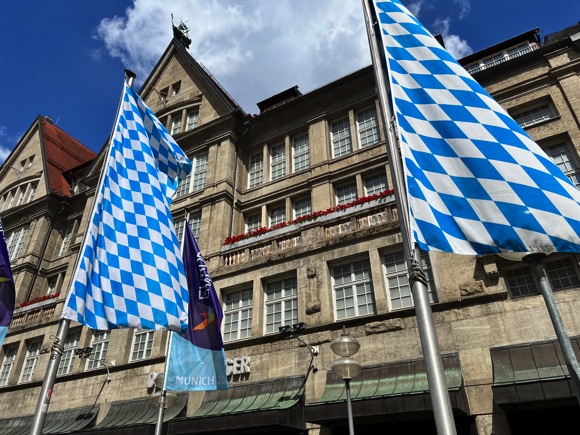

It was local 1860 (‘Sechzig’) who were invited to join the inaugural Bundesliga in 1963, prefacing TSV’s golden era. Bayern’s would come later that same decade, spearheaded by half-back Beckenbauer, goalscorer Gerd Müller and goalkeeper Sepp Maier. The trio won three consecutive European Cups in the early 1970s – and, of course, that World Cup in between.
Beckenbauer was born just after the war on Zugspitzstraße in Giesing. After his death in January 2024, candles were placed outside house No.6 where his family lived. From their home, it’s a ten-minute walk to TSV’s ground, the Grünwalder Stadion.
Also shared by Bayern, the Grünwalder became a prominent football venue after expansion in the 1920s. Here Germany played three full internationals until 1940, the Olympic team two (including an exhibition game with Cowdenbeath in 1928) and a Bavaria XI took on (and invariably beat) regional opposition.
Bombed in World War II, the Grünwalder Stadion was quickly rebuilt, during which time 1860, Bayern and the city’s third club at the time, Wacker München, Bavarian and South Bavarian champions in the early 1920s, moved to Dantestraße.
Located by Westfriedhof U-Bahn just past the Olympiastadion, the stadium is today home to the city’s two American football teams, the Munich Cowboys and the München Rangers.
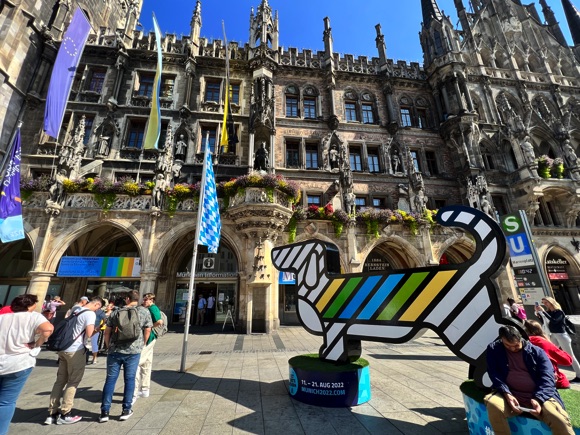

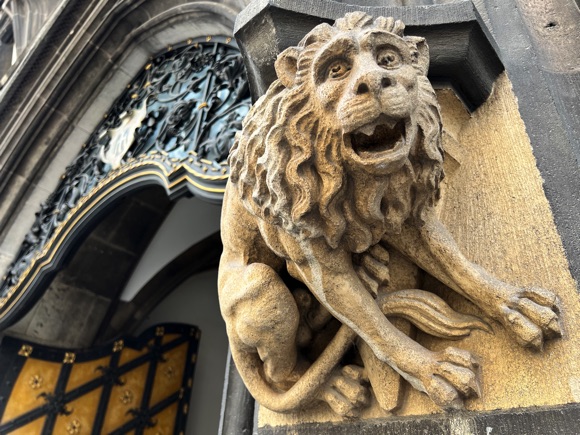
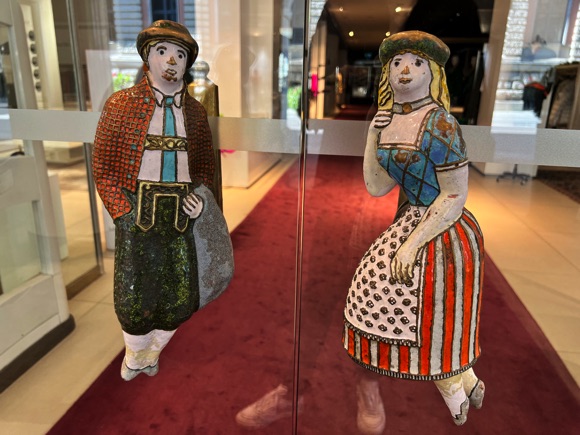

In an uplifting footnote, Dantestraße hosted one of the first games played by West Germany’s women’s team, against their Dutch counterparts in 1957, two years after the DFB had banned ladies from playing.
As for Wacker, who even made the semi-finals of the German national play-offs at their peak in the 1920s, the blau-schwarz were based at Dantestraße until 1972, then tumbled down the divisions until settling at local level. Games are now played at Demleitnerstraße near Brudermühlstraße U-Bahn in Sendling, just over the water from the Grünwalder.
it didn’t take long for the city’s main football ground to attract fans back in 1945, once the bomb craters had been filled in. Derby games drew crowds of 40,000-plus, the record set when Nürnberg visited in 1948, 58,000 crammed into the 45,000-capacity ground, the limit set by the City which had bought the stadium from cash-strapped TSV before the war.
Temporary floodlights were erected for international friendlies, including West Germany’s B team, and a game featuring Pelé and Santos in 1960. Both TSV and Bayern staged winning league campaigns and strong European runs at the Grünwalder – named after the street on which it stands, not the leafy district way south-west of town.
Bayern and TSV the shared the Olympiastadion until 2005, before moving together to the Allianz – but their paths would divide soon afterwards.

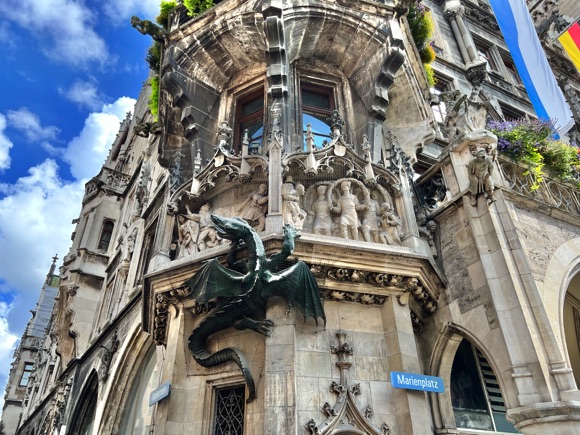

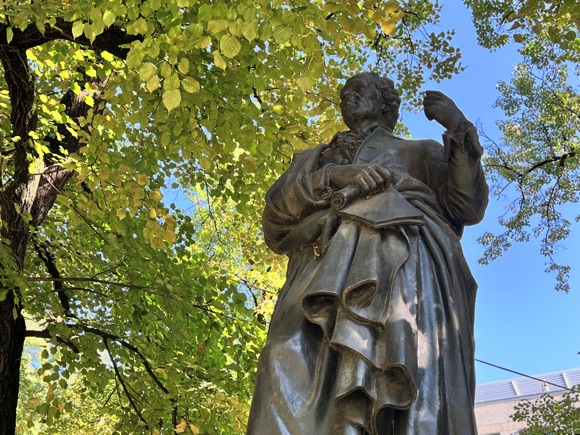

As Beckenbauer moved into administration – he had a key role in Germany’s successful bid to host the 2006 World Cup, and thus the building of the Allianz Arena – his former teammate Uli Hoeneß took over as Bayern’s commercial manager, then president. Like Juventus in Italy, Bayern sought to extend their support, and thus marketing revenue, nationally, while regaining their status as a European superpower.
They remain loved and hated (FC Hollywood!) in equal measure, their buying power and star status mocked from Aachen to Wolfsburg. The club’s failure to win a 12th straight league title in 2024 caused no little pleasure across the nation.
Lost in Bayern’s shadow, TSV were relegated in 2004, then slipped into lower-league football. Once due for demolition, the Grünwalder was given a new lease of life. In 2017, as Bayern claimed yet another Bundesliga crown, TSV plunged to rock bottom. Falling out of the 2.Bundesliga by losing a play-off to Jahn Regensburg, the populist club then threw in the towel, declared itself amateur, entered the Bavarian Regional League and moved back to good old Grünwalder Straße.
TSV duly won the division, ironically leaving Bayern’s reserve side in second place, but could only finish mid-table in the 3.Liga in 2018-19.
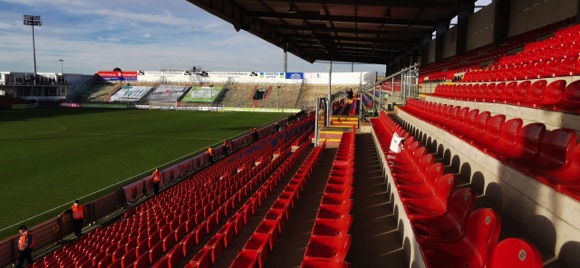
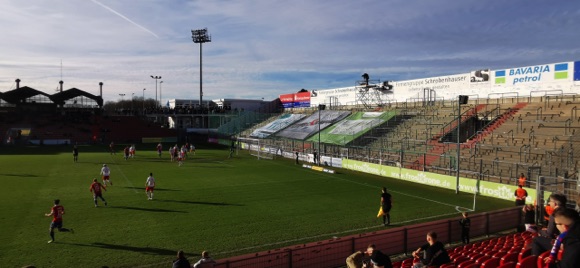
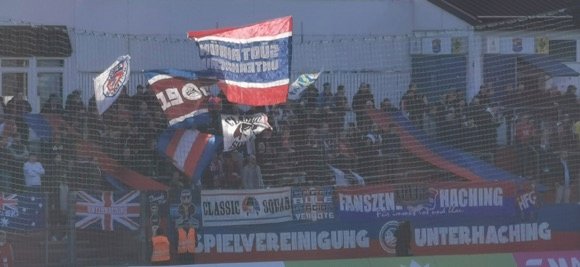
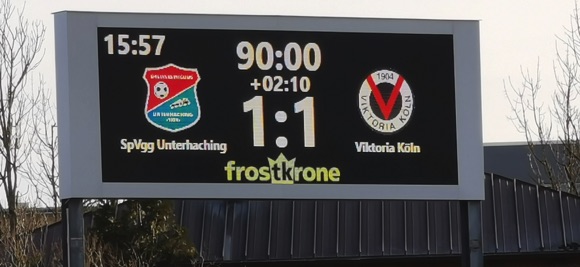
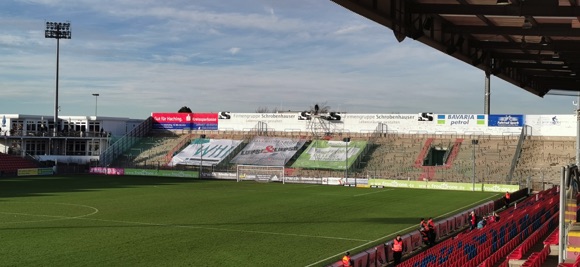
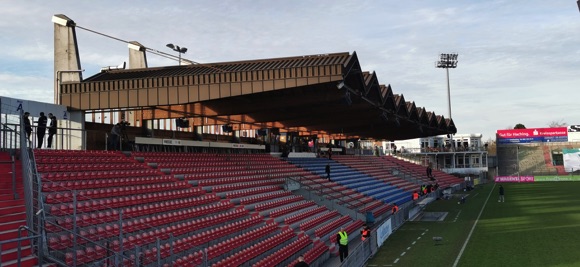

That same season, Bayern’s reserve side gained promotion from the fourth to the third tier, and set up regular derby clashes with TSV. Also based at the Grünwalder, Bayern Munich II spent two seasons in the 3.Liga before dropping down to the Regionalliga Bayern. The team still shares the Grünwalder with Sechzig.
TSV’s efforts to regain second-tier status have seen the Grünwalder packed out most home games and football passion return to south Munich. For a brief period, the city’s third club, Türkgücü München, representing Munich’s Turkish community, almost overshadowed TSV, making the 3.Liga in 2020. Alternating home games between the Grünwalder and the Olympiastadion, Türkgücü overreached themselves and were forced to file for insolvency in January 2022.
Türkgücü now play in the Bayern regional league, their home the more modest Sportanlage Perlach-Nord on Heinrich-Wieland-Straße at Ostpark, east of the city. In the same division in 2022-23 but firmly intent on promotion, Unterhaching play at the 15,000-capacity Sportpark, between the Unterhaching and Fasanenpark stops on the S3 S-Bahn line. Tickets to watch the Reds are €8 standing, €12-€18 sitting.
Haching spent two seasons in the Bundesliga between 1999 and 2001, attracting a string of famous ex-players – Andreas Brehme, Klaus Augenthaler, Christian Ziege – to try their hand at coaching. Although previous winners of the Bavaria Cup, the football club plays second string to the bobsleigh team, which has featured world and Olympic champions.
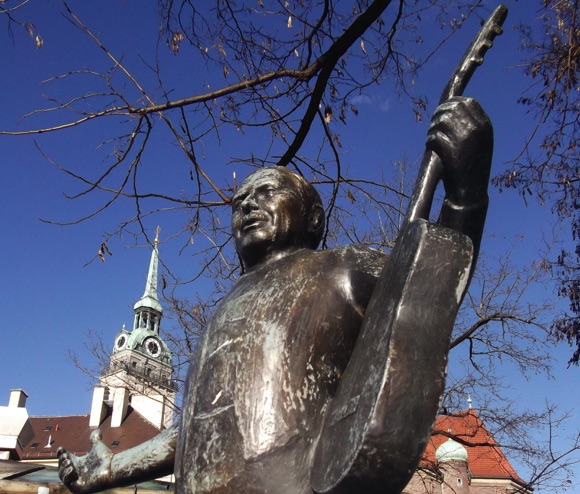




Getting Around
Arriving in town and local transport

Munich Airport is 28km (18 miles) north-east of town, connected by S-Bahn lines S1 and S8 that take different routes to the central stops of Marienplatz and Hauptbahnhof main station about 40-45mins away. Although the lines pass through the area of north Munich, location of the Allianz Arena by Fröttmaning station, you have to go into town and back north again to reach it.
A day pass valid until 6am on the transport network of U-Bahn, S-Bahn, trams and buses is €8.80, a single €3.70. A taxi (+49 89 19410) from the airport to town should cost about €60, €40-€45 to the Allianz-Arena.
The budget-air hub of Memmingen is about 90km (55.5 miles) from Munich. Five Allgäu Airport Express buses a day (€15 plus €3 for bulky luggage, journey time 1hr 25mins) run to Munich main station.
Where to Drink
The best pubs and bars for football fans


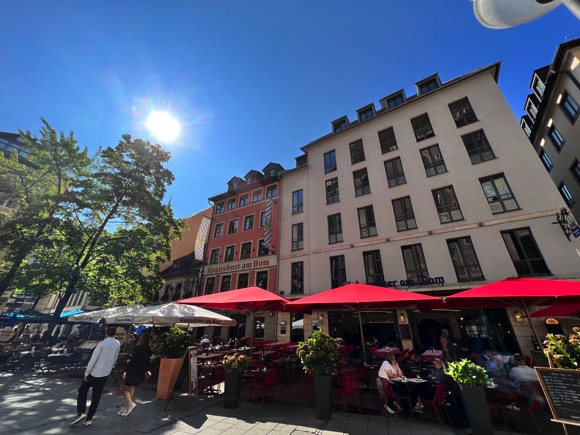

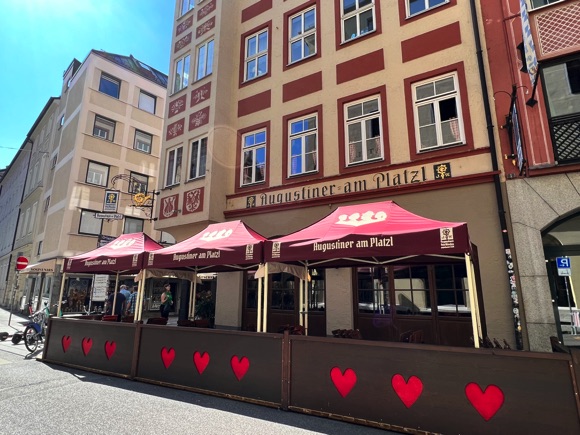
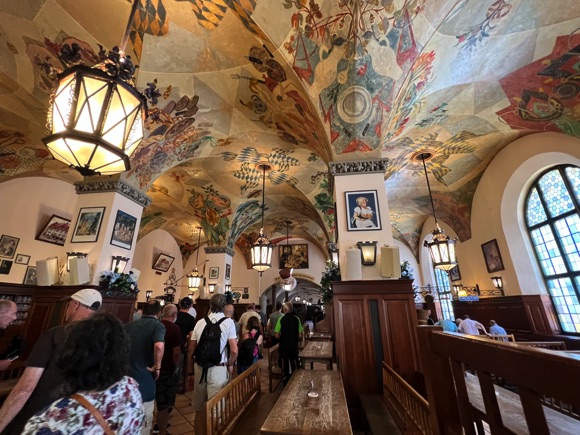


Munich is a beer capital. Around the centre are the flagship hostelries of the huge regional brewing companies, such as the Hofbräuhaus and Augustiner, typical of the historic taverns now geared to the tourist market.
Augustiner has several central outlets underscored by tradition, Am Dom on Frauernplatz, Am Platzl on Orlandostraße and the Stammhaus on Neuhauser Straße among them.
Football is shown at the authentic Alter Simpl on Türkenstraße, opened in 1903 and named after a satirical magazine from the 1880s, with a more bohemian clientele than the streams of tourists piling into must-see taverns.
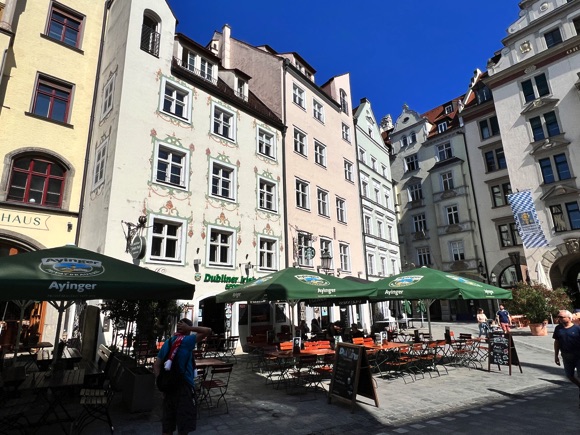
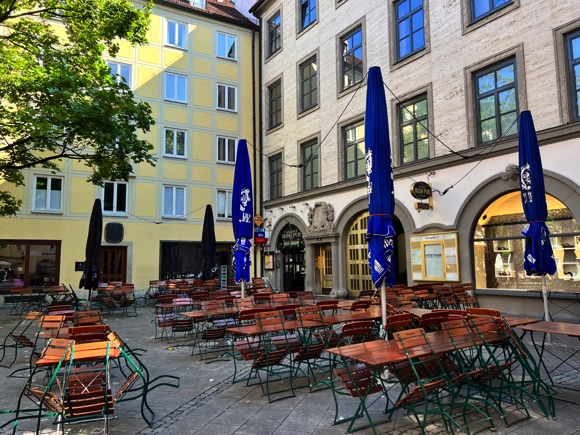
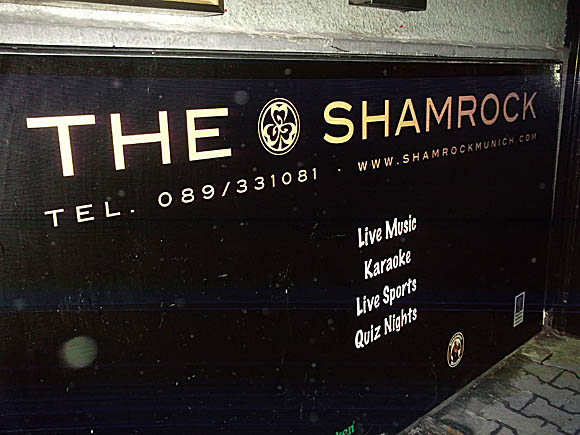




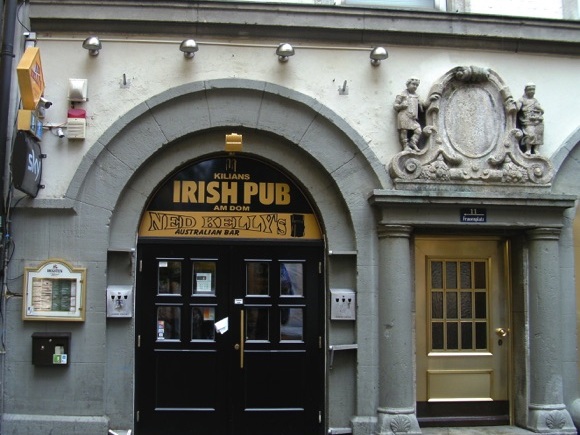
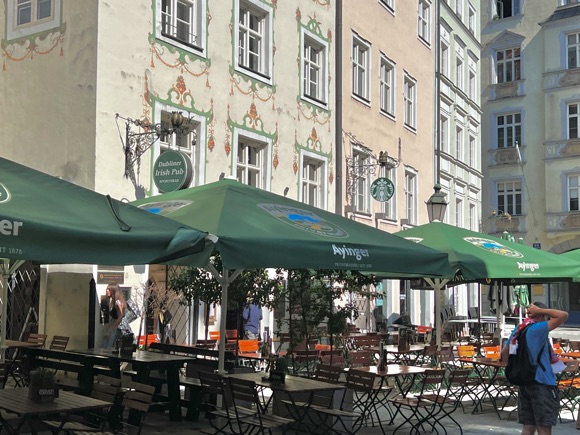

Back on the focal square of Frauenplataz, Ned Kelly’s Australian Bar and Kilians Irish Pub share the same building, the same entrance, in fact, and complement each other in terms of which sports and channels they screen.
The other side of Marienplatz at Platzl, the Irish Pub Dubliner is a big sports hangout with outdoor seating while Kennedy’s at Sendlinger Tor has a large HD screen and beer garden.
Close to Münchner Freiheit U-Bahn, evening-only Shamrock was one of the city’s first expat pubs, with TV sport and live music still major draws.

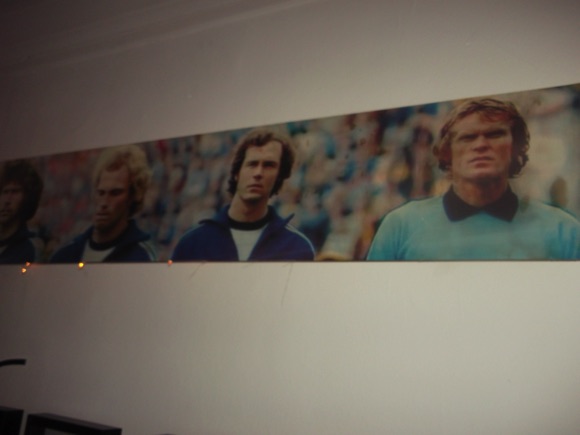

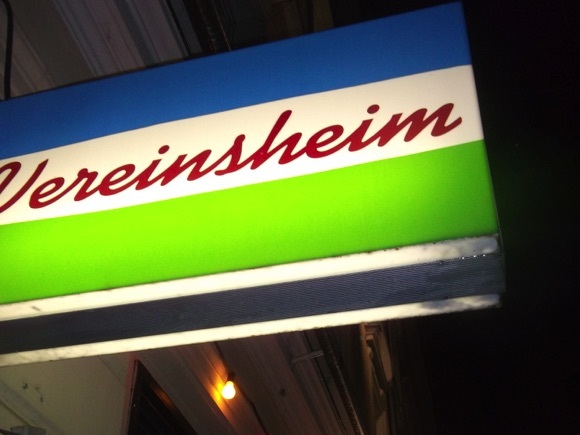

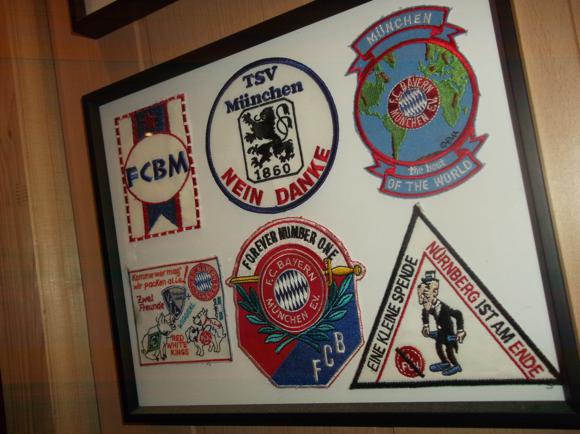
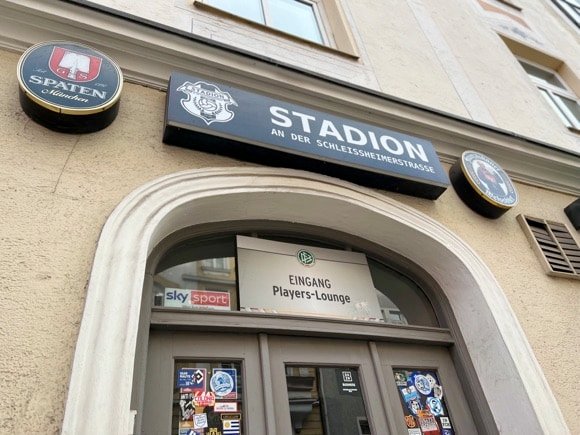




In the party area of Schwabing, the cult haunt of the Vereinsheim displays West Germany’s 1974 World-Cup winning team as a paradigm of free-thinking creativity, also reflected in the type of entertainment now staged here.
For a solid-gold spot to watch the game, Stadion an der Schleißheimer Straße on the street of the same name won Germany’s Football Bar of the Year shortly before the pandemic. It remains dedicated to TV football, with an extensive schedule every week, evenings only between Tuesdays and Fridays, daytimes too at weekends, offering house burgers and sausages, and many beers.
Near the station, the Fan Arena (Arnulfstraße 16) displays classic Bayern memorabilia from the owner’s personal collection in a small bar tucked down a passageway.
Where to stay
The best hotels for the stadiums and city centre
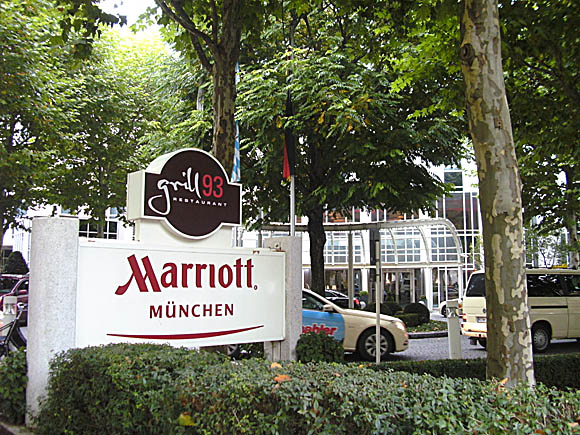

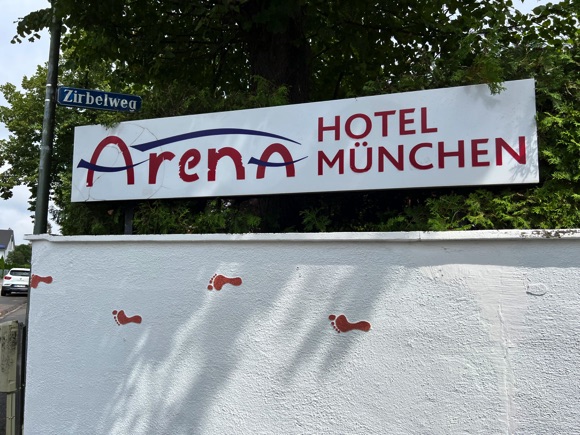
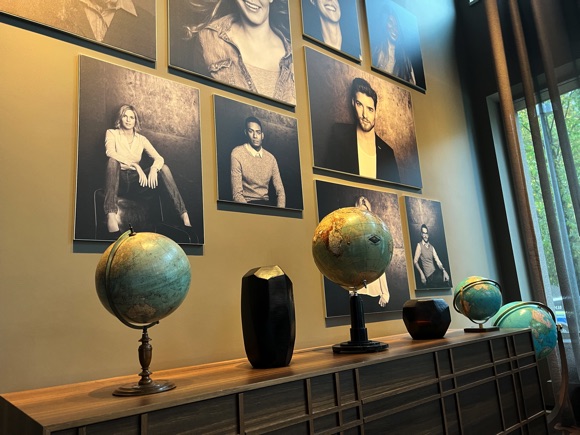
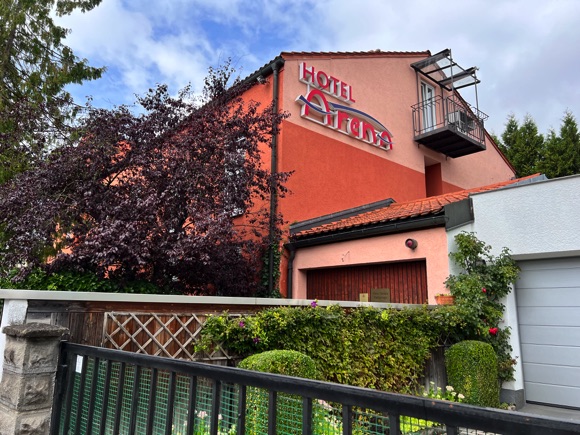
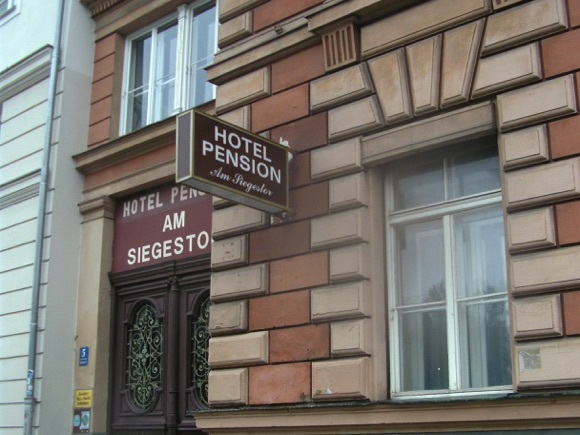
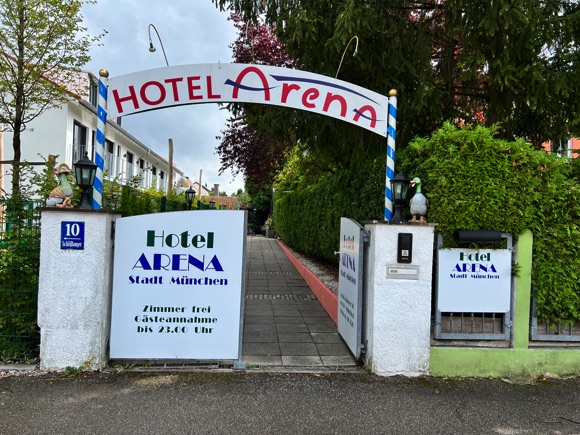

The tourist office has a botel database and booking, You’ll find nothing for the two weeks of Oktoberfest in late September/early October unless you book months in advance.
Near Kieferngarten U-Bahn stop, one down from Fröttmaning and the Allianz Arena, the Hotel Arena Stadt München is a pleasant mid-priced guesthouse 20mins’ walk from the stadium.
On the same U6 line near Nordfriedhof, Munich Marriott features the Champions Sports Bar along with a pool, gym and sauna. It sits in a hub of other upscale chains handy for both the Allianz-Arena and the nightlife options of Schwabing. The affordable Hotel Pension am Siegestor sits near U6 Universität.
For TSV down in the south of town, the Motel One Munich-Campus on Tegernseer Landstraße is a handy branch of the popular wallet-friendly nationwide chain, only a short walk to the ground.


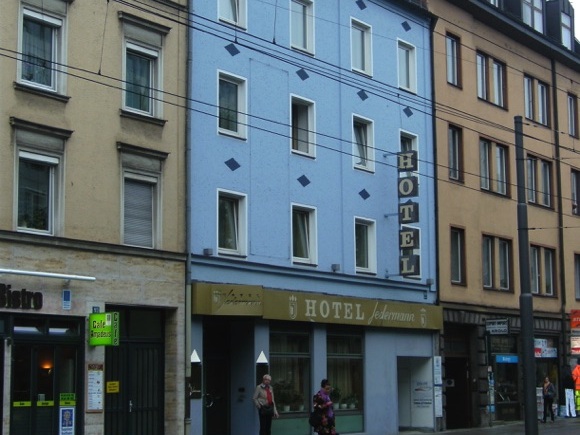
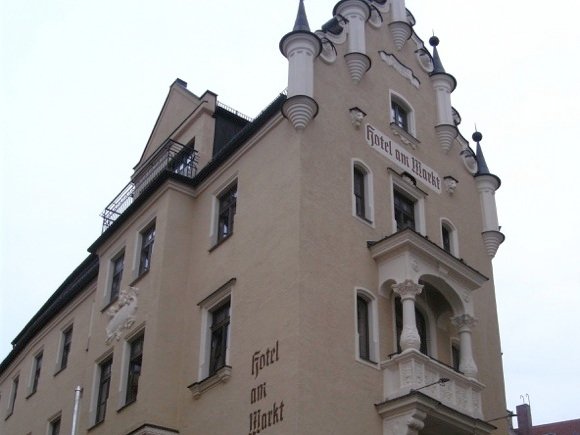
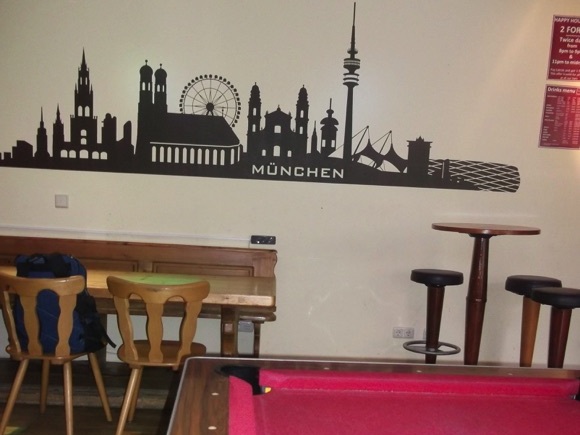
Back in town, dead central Hotel am Markt has a range of rooms and prices. Close to Marienplatz, four-star Platzl on Sparkassenstraße complements a new spa area in 2023 with fine dining and upscale hospitality provided by the Inselkammer family.
On nearby Promenadeplatz, the Bayerischer Hof epitomises luxury, with its panoramic spa, fine dining and individually designed rooms.
Within easy reach of the station, the classic, family-run Hotel Jedermann is affordable and convenient. Nearer the rail hub, the 4you is one of a new generation of half-hostels, half-budget hotels, with a pool table and 24hr reception.
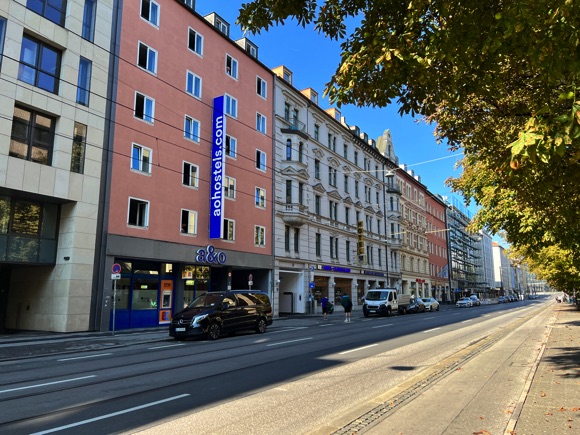


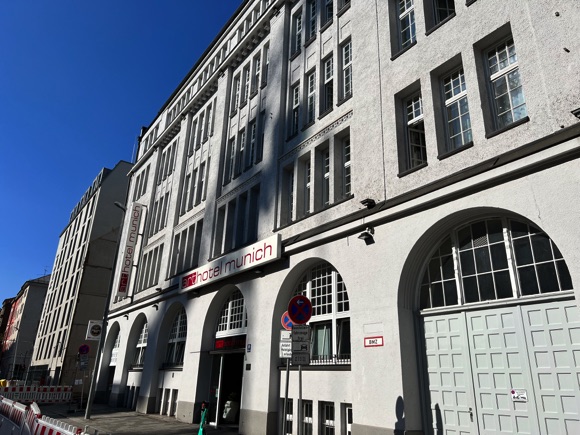

On the next street over, Arnulfstraße, the Eden Wolff exudes old-school style, catering to rail travellers since 1890 and providing a warming fire in the elegant bar in winter.
Immediately surrounding the station are probably 40 hotels, many on or behind Bayerstraße to the south, the Hauptbahnhof Süd exit as you step off your train. The Bayernland feels elegant despite its three-star status, while next door, the a&o München Hauptbahnhof comprises convenient singles, doubles and dorms in a hotel/hostel combination so successful across Germany.
Right by the station building, the Pension Central is fairly basic but affordable. A few buildings down, parallel to the station on Paul-Heyse-Straße, the arthotel munich has decided to go the boutique route while charmingly still offering fax, postal, newspaper and even flower services.










By the Hauptbahnhof Süd tram stop, Le Méridien Munich offers the reliable comforts of a sauna, pool and gym while the Sofitel is an elegant five-star with nearly 400 rooms. Flemings Hotel München-City provides the discerning urban traveller with a sauna, gym and Weisswurst for breakfast.
Still close to the station on Bayerstraße, the family-run Europäischer Hof provides mid-range comfort, Bayer’s aims to be a little more funky, and so does the Ruby Rosi, with its 24-hour bar and roof terrace. Mid-range Stachus suits those on a city break.
The nearby Smart Stay puts affordability first without skimping on comfort or range of lodging, with singles, doubles and dorms.



